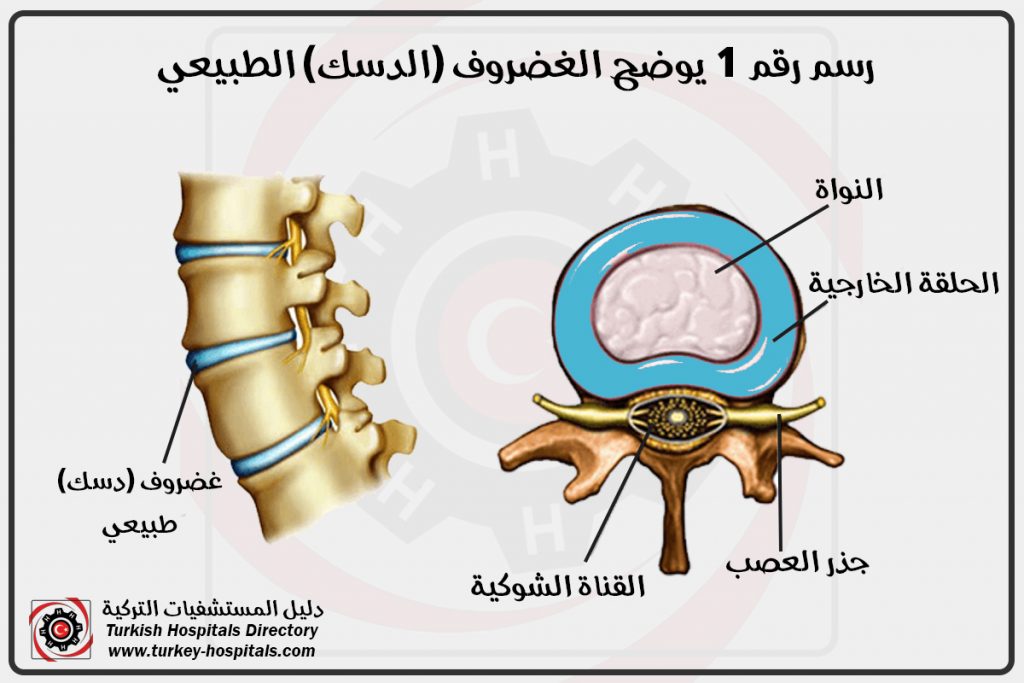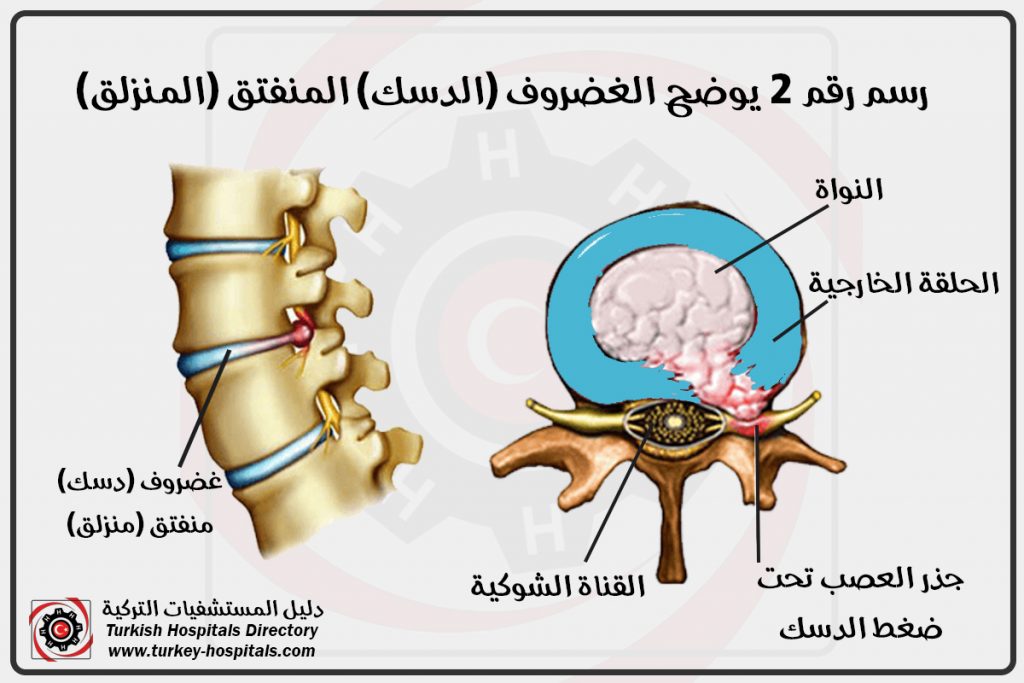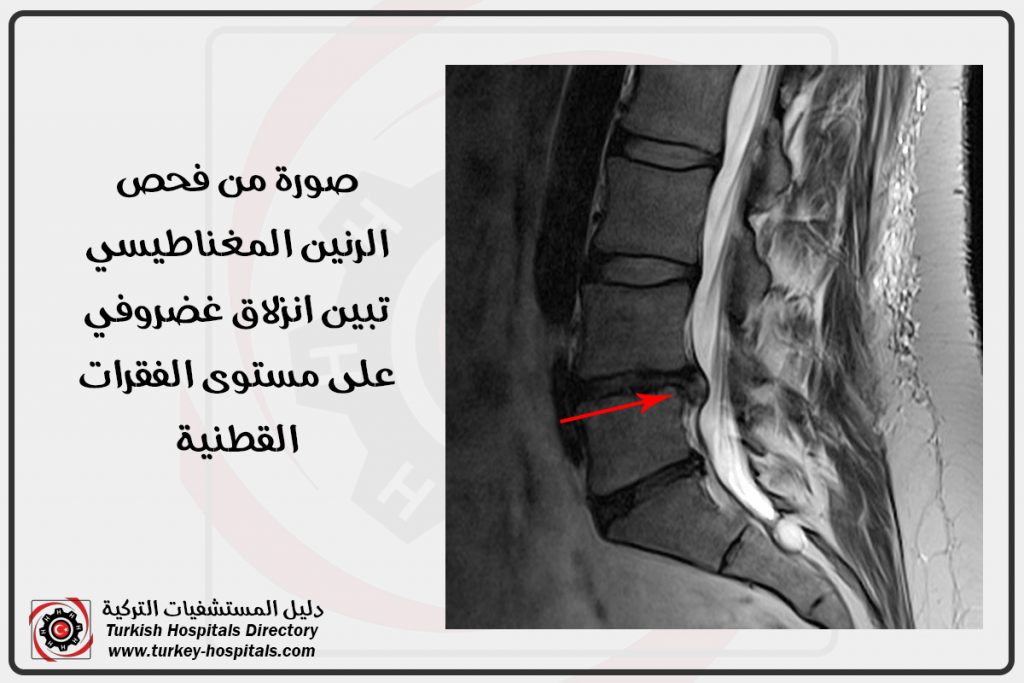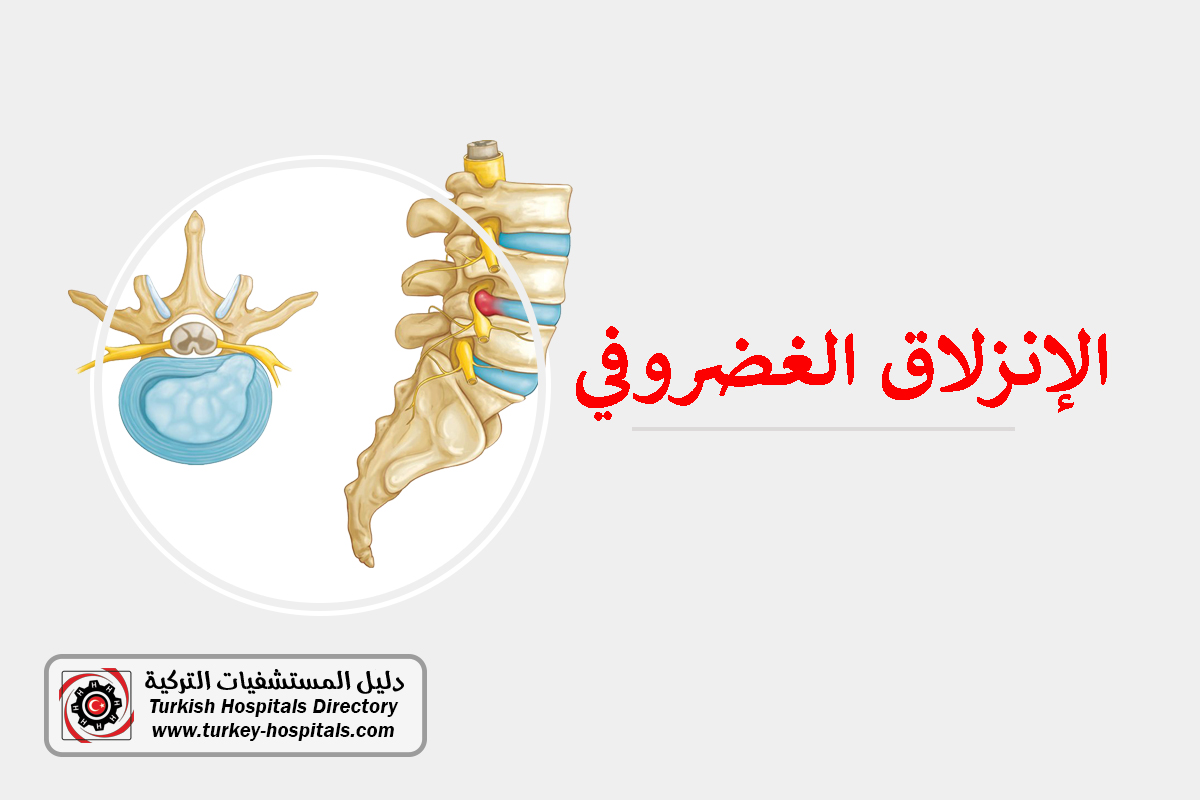A herniated disk (disc) has a soft, jelly-like center (the nucleus) covered by a tougher, rubbery outer layer (the annulus).
The purpose of these discs is to absorb shock and give flexibility to the movement of the bony parts (vertebrae).

A slipped disc is often the result of a gradual, age-related wear and tear called disc degeneration. as you age, Herniated discs become less flexible and more likely to rupture even with minor strains or sprains.
Most people cannot determine the cause of a herniated disc. Sometimes, Using your back muscles instead of your leg and thigh muscles to lift heavy objects can cause a herniated disc. It can also lead to twisting and rotating while lifting. Rarely, the cause is a traumatic event such as a fall or blow to the back.
In the case of a herniated disc, a rupture (herniation) occurs in the outer ring of the herniated disc, which leads to the eruption of part of the elastic nucleus outward, causing pressure on the nerve, and according to where the slip is, symptoms appear. Therefore, sometimes a person has a slipped cartilage, but does not put pressure on the nerves, so no symptoms appear. Syndrome.

The main symptoms of herniated disc
Most herniated discs occur in the lower back. Although it can also occur in the neck. Slip signs and symptoms depend on where the disc is, and whether the disc is pressing on a nerve. It usually affects one side of the body.
- Arm or leg pain: If the herniated disc is in your lower back, You will usually feel severe pain in the buttocks, thigh and leg. You may feel pain in one part of the foot as well. If the herniated disc is in your neck, You usually feel severe pain in your shoulder and arm. This pain may spread into your arm or leg when you cough, sneeze, or move into certain positions. The pain is often described as sharp or burning.
- Numbness or tingling: People with a herniated disc often experience diffuse numbness or tingling in the part of the body served by the affected nerves.
- Weakness: The muscles served by the affected nerves tend to become weak. This can cause you to stumble or affect your ability to lift or hold objects.
You can have a herniated disc without symptoms. You may not know you have it unless it appears on an MRI of your spine.

To view the herniated disc treatment techniques in Turkey, please click here


Leave a Reply